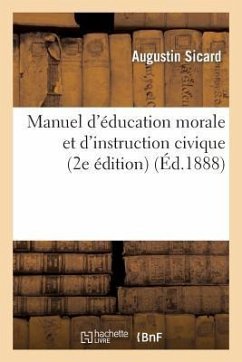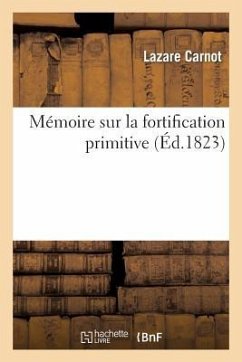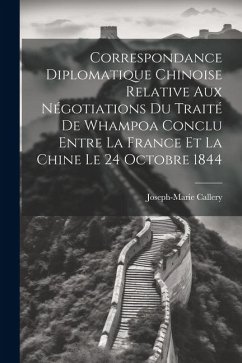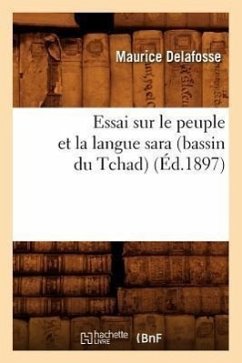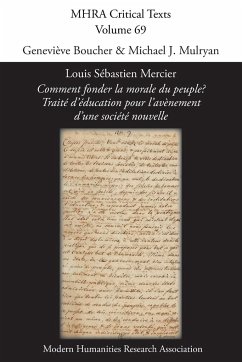
Louis Sébastien Mercier, 'Comment fonder la morale du peuple? Traité d'éducation pour l'avènement d'une société nouvelle'
Versandkostenfrei!
Versandfertig in 1-2 Wochen
26,99 €
inkl. MwSt.

PAYBACK Punkte
13 °P sammeln!
How might Republican France create the homme nouveau, or the ideal citizen, upon which the nascent republic placed its hopes? This is the question that Louis Sébastien Mercier (1740-1814) asks in this 1801 treatise on moral education, which has remained unedited until the present day. In this treatise, the polymath, known for his urban chronicles as well as his political engagement during the Revolution, tackles a question that pervades revolutionary discourse beginning in 1789: how can institutions be reformed in such a way that they can sow the seeds for the values of liberty, equality, and...
How might Republican France create the homme nouveau, or the ideal citizen, upon which the nascent republic placed its hopes? This is the question that Louis Sébastien Mercier (1740-1814) asks in this 1801 treatise on moral education, which has remained unedited until the present day. In this treatise, the polymath, known for his urban chronicles as well as his political engagement during the Revolution, tackles a question that pervades revolutionary discourse beginning in 1789: how can institutions be reformed in such a way that they can sow the seeds for the values of liberty, equality, and fraternity in the heart of every citizen? His moral philosophy, such as it is presented in this text, was largely inspired by German critical philosophy and Kant’s works in particular, which Mercier helped to make more widely known in France. This newly edited manuscript is thus particularly important for an understanding of both the author’s intellectual trajectory and the history of ideas in the long eighteenth century. Written at the beginning of the Consulate during Napoleon’s rise to power, this text offers scholars a retrospective look at the social and political upheaval that marked the last decades of the ancien régime and the revolutionary period. Its content reflects both Mercier’s personal experiences as a survivor of the Terror and the philosophical debates of his time.





